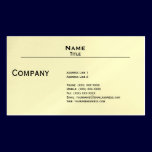Suggestions
- Contact the Human Resources department of your former employer and ask for the contact information for the company's 401k custodian. Explain that your are no longer employed by the firm, as many companies have different divisions that deal with either current or former employees.
- Contact the 401k custodian and identify yourself by providing your name, date of birth and Social Security number. Ask the representative how much you have in your account and how much of that money actually belongs to you. Many companies have vesting schedules, meaning that the employer made contributions that do not technically become yours until a few years after the contributions have been made.
- Ask the representative to liquidate your account and either mail you a check or wire the proceeds to your checking account. It normally takes seven to 10 days to receive a check, whereas wired funds are normally available the next day, although you may have to pay a fee to have funds sent electronically. The custodian has to withhold 20 percent to cover federal tax, and you can ask the custodian to withhold extra funds for tax if you have to pay the 10 percent tax penalty. You can also opt to pay the additional tax when you file your taxes.
- Review the disbursement check and the attached 401k disbursement statement to find out the closing balance of your account. Fund values update nightly, so your custodian cannot tell you how much your funds are worth until after the funds have been sold.
Tips
- Generally, you have to pay the 10 percent premature withdrawal penalty when you access your 401k funds prior to reaching age 59 1/2. However, the Internal Revenue Service makes an exception for people who are age 55 or older. Such people can access 401k funds without incurring the penalty when they experience a separation of service.
- When you cash in your 401k, the Internal Revenue service treats the disbursement as taxable income, and you may also have to pay state taxes on the funds that you receive. However, some states reduce or stop your unemployment benefit when you cash in your 401k. Therefore, contact your state's unemployment office to find out how a 401k distribution will impact your unemployment benefit, because you cannot reverse the disbursement after you receive the money.
______________________
Custom Business Cards
$78.90 - Iridescent Pearl Finish






No comments:
Post a Comment